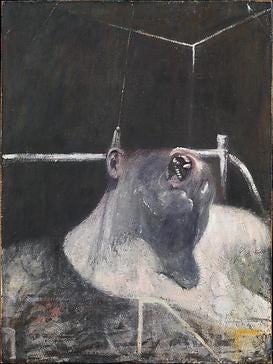Early in my career, I helped teach medical and research ethics courses at the Graduate School of Public Health (GSPH) at the University of Pittsburgh. Perhaps I shouldn’t have. I’m not trained as a physician, philosopher, or attorney, and I didn’t have the scholarly credentials to lecture on medical ethics. But I am writing today about what I have learned as a patient.
One of the arguments for allowing doctors and nurses to euthanize a competent patient who requests it is that patients can experience states of suffering so severe that they would be better off dead than alive. I am persuaded that some people do experience lives of intense suffering, as in the case of Dax Cowart, a man who wanted to die because he had lost his hands and eyes and suffered extensive burns in a propane explosion.
Proponents of access to medical euthanasia argue denying patients like Dax access to euthanasia causes them unnecessary suffering. This is a strong argument, although I believe we must balance this against the concern that increased access to medical euthanasia will increase preventable impulsive suicides by people suffering from treatable disorders.
How much weight you give to Dax cases depends on how common you think they are. When I discussed these issues as a young man during GSPH seminars, the notion of a state of life worse than death was an abstraction. I didn’t know anyone who had suffered anything as severe as Cowart, and I had no personal acquaintance with such suffering. So, I assumed that such cases were rare.
Quantitative analysts optimize policies to fit the needs of typical patients. We believe hard cases make bad law, and we tend to discount the importance of rare cases.
However, in the past few months, I have had experiences of suffering that I would rather die than experience again. The worst experiences were the seizures. When I went into a seizure, I would try to talk but could only produce grunts. Likewise, trying to move, my arms and legs jerked in ways I could not control. There was nothing I could do to escape the seizure, so I feared that I would be locked in forever.
I was in a state of existential terror. I wasn’t thinking, “Oh, this is what Dax meant.” Several of my seizures occurred in an ED waiting room, and what I asked myself at the time was, “Can I get past the ED security—that big man watching me because I am so agitated—and get out the door and successfully throw myself in front of a truck?” I didn’t try because I knew how much that would harm my wife and children.
My point is that I did not judge my life as not worth living by comparing my experience against some benchmark. Instead, the suffering was so intense and immediate that I was seized by the desire to end it.
The upshot is that I think that intense and severe suffering—suffering that arguably makes life worse than death—is more common than I had imagined. Perhaps it’s a fallacy, but how rare could it be if it happened to me?
This has changed my view on medically assisted euthanasia in the following way.
I have never supported an absolute ban based on the traditional view that physician-assisted death is murder. But I doubt that I expressed this clearly, in part because I viewed severe suffering as a rare edge case. I apologize to anyone who felt I was dismissing their experience or their family member’s experience.
Medically assisted euthanasia—called Medical Assistance in Dying, or MAID—is now a fact of Canadian life. I continue to fear that there are grave social risks in making it easier for patients to access medical euthanasia, above all young people or persons with mental health disorders. I believe more strongly than ever that the principal problems here are the low priority that medicine places on patient comfort and the lack of access to good psychiatric and palliative care at the end of life. The best way to prevent suicide is to give people at the end of life positive reasons to continue to live and to ensure that patients do not suffer unnecessarily when death comes.






https://compassionandchoices.org/resource/medical-aid-in-dying-utilization-report/
Interesting enough there are statistics out there that showed when it became legal first in California and Oregon of those that received and requested the medication’s to accomplish MA ID, less than 30%, actually went on to take advantage of that. And as you see in the article, it seems that understanding that there might be a way out of suffering, provides some sort of reassurance that they will not be caught in endless horrible suffering, even if they choose not to use MA ID.
I'm an endocrinologist and not an oncologist b/c of the suffering I witnessed in some people with end stage cancer. Not all suffering is the same. Some might be proactively perceived. When a family member was in end stage dementia - not recognizing family, not speaking - I told my daughter that if this ever happened to me she should "just shoot me" as it would not be an existence of any value.